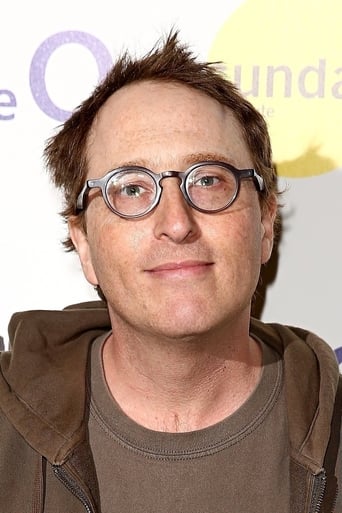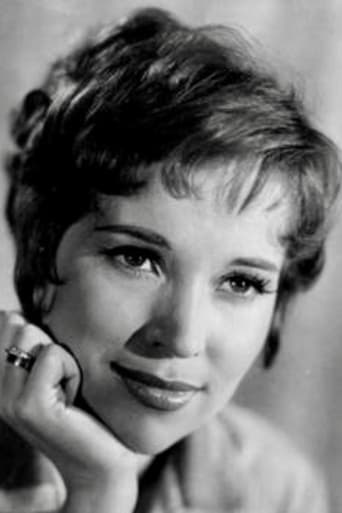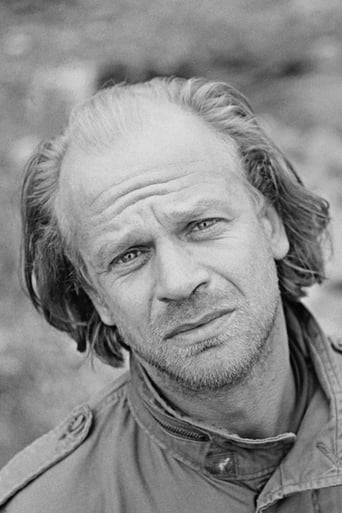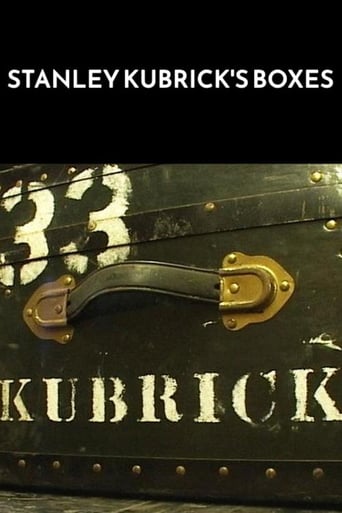
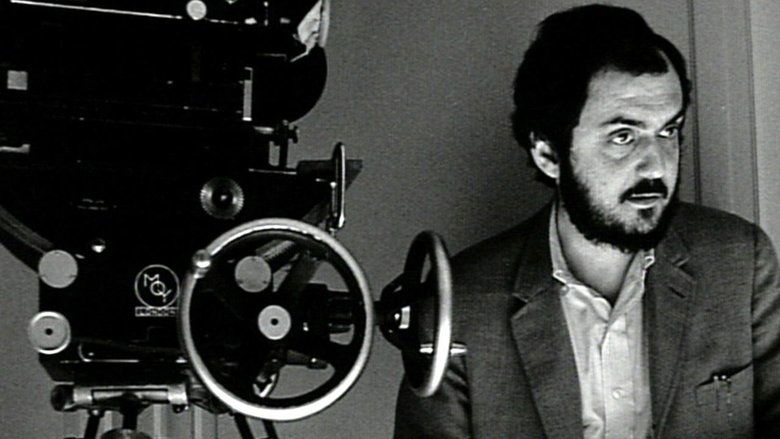
Stanley Kubrick's Boxes (2008)
A few years after his death, the widow of Stanley Kubrick (1928-1999) asks Jon Ronson to look through the contents of about 1,000 boxes of meticulously sorted materials Kubrick left. Ronson finds that most contain materials reflecting work Kubrick did after the release of "Barry Lyndon" in 1975, when Kubrick's film output slowed down. Ronson finds audition tapes for "Full Metal Jacket," photographs to find the right hat for "Clockwork Orange" or the right doorway for "Eyes Wide Shut" -- thousands of details that went into Kubrick's meticulous approach. Ronson believes that the boxes show "the rhythm of genius." Interviews with family, staff, and friends are included.
Watch Trailer
Cast


Reviews
Stanley Kubrick was an intensely interesting man. He was also secretive and reclusive. Not surprisingly,very little media exists about Stanley and/or the production of his films.Jon Ronson has taken boxes from Kubrick's house and opened them. The boxes contain pictures and documents from the director's productions and after examination, permit the Kubrick curious to glimpse aspects of Stanley's mind and method. Ronson puts the distillation of his finds into this meandering documentary film.There are some impediments during the film. Ronson's voice is irritatingly nasal and high pitched. And when he pronounces the letter "S", the sibilance is so intense that his deliberately calm demeanor becomes painful.Also, there is too much of Mr Ronson in the film. The viewer could be forgiven if they were to be confused about his the subject and who is the reporter.Otherwise, the subject of Kubrick's Boxes is fertile ground for you if are interested in the man. And with some effort and concentration, we got past the Mr Ronson's heavy hand and grating voice.
To be quite honest, and I say this as a major Kubrick fan, hoping to direct films myself one day, that I learned more about the man from this one documentary than I have any other. It is short, yes, but it describes the genius and eccentricity of Kubrick so well.I really can understand Jon Ronson when he says he was privileged by the experience, going through the so called "kubrick boxes" getting an incredible insight in Kubrick's mind. Also I was relieved when they in the end said that the boxes where now stored in a London film school for preservation and educational purposes.There really isn't anything wrong about this documentary, other than Jon Ronson's bad habit of giving some rather silly and stupid movie references in the middle of interviews and as I said earlier, it was a little short. If Jon Ronson ever decided to make a longer cut of this documentary, I would love too see it.
http://eattheblinds.blogspot.com/The day Stanley Kubrick died I was terribly saddened. My grief was for a very selfish reason, simply that I would see only one new Kubrick film for the rest of my life. That film was Eyes Wide Shut and it proved to become one of my favorite Kubrick films. But losing Kubrick too early was a tragedy, not just because it would push A.I. onto Spielberg's desk, but because Kubrick still had a few films left in him and those films, would undoubtedly be masterpieces. Masterpieces are fewer and further between now more than ever and if the current state of film-making is any indication, there will never be another Kubrick.The other day I was sent a link to a fascinating Channel 4 documentary directed by Jon Ronson titled: Stanley Kubrick's Boxes. When Ronson is invited to Kubrick's estate after the reclusive director's untimely death, Ronson becomes captivated by the thousands of boxes stacked and stored throughout Kubrick's stately home. The boxes (and their contents) become the subject of his documentary. What you learn about Kubrick though the contents in these boxes is that he is obsessed with detail oriented work, the methodology behind the perfection of his films. This isn't so much of a revelation as it is impressive with how much research and pre-production Kubrick would put into his films. He left no stone unturned, concrete proof that every single frame of a Kubrick film is deliberately and painstakingly crafted. This is the price of perfection.Searching through all of these boxes as a way to glimpse into the mind of Kubrick has a Rosebud quality to it and Ronson addresses this in the doc's conclusion. He concludes that he found his Rosebud within a few lines spoken by Kubrick on a videotape acceptance speech for his DGA Lifetime Achievement Award. Kubrick states: "Anyone who has ever been privileged to direct a film also knows that although it can be like trying to write War and Peace in a bumper car in an amusement park, when you finally get it right, there are not many joys in life that can equal the feeling." Ronson adds that this quote makes it apparent Kubrick realized in order to make films of genius -- in a world full of bad films -- there has to be a method: precision and detail. In my opinion, there is no question Kubrick is the most important director since Orson Welles. Watching Boxes I now feel I have a better understanding why.
Stanley Kubrick's Boxes (2008) **** (out of 4) I've often wondered what type of genius or madman someone like Kubrick would have to be in order to create the masterpieces that he did and this documentary tries to uncover some of that. Director Ronson was invited to the Kubrick Estate to go through thousands of boxes that Kubrick had saved up throughout the years and what we see are some rather amazing items, which show why it took the director so long to make movies. In his final 19-years Kubrick only made three films and the reasons why are discussed here. If you're a fan of Kubrick then I don't see how it would be possible not to love this documentary even though, sadly, it only runs for just under an hour. Some of the things we see and learn are rather shocking and mysterious. The mysterious figure that Kubrick was is certainly going to be even more mysterious after this film but it does give us a close look at how the genius worked. The most amazing section were notes from fans that the director collected. Apparently he read them all and would mark them as being positive, negative or crank meaning threatening. He would then take the letters and put them together by the movie and then break them down into the cities where they came from. Even more astounding is how much pre-production he would do when making movies. He had his nephew, a photographer, spend a year taking pictures of stuff that would eventually go into Eyes Wide Shut and that includes thousands of photographs for gates, which would end up only being seen for a matter of seconds in the movie. Fans of Full Metal Jacket will also get a kick out of learning that Vivian Kubrick's documentary is still safe and at the estate in the form of 18-hours worth of footage. We get to see a few clips here including one with Kubrick debating when tea breaks should happen. There's a lot of wonderful footage in this documentary and it's great to know that the Estate has turned all of this stuff over to the London University of Arts where anyone can go and look through them. The bad news is that it's apparently true that Kubrick destroyed all the outtakes from his films, which is strange since this documentary shows that he saved everything. There's also some great talk about his Holocaust movie, which he worked on for nearly three years before giving up on it after the Spielberg movie started production.


